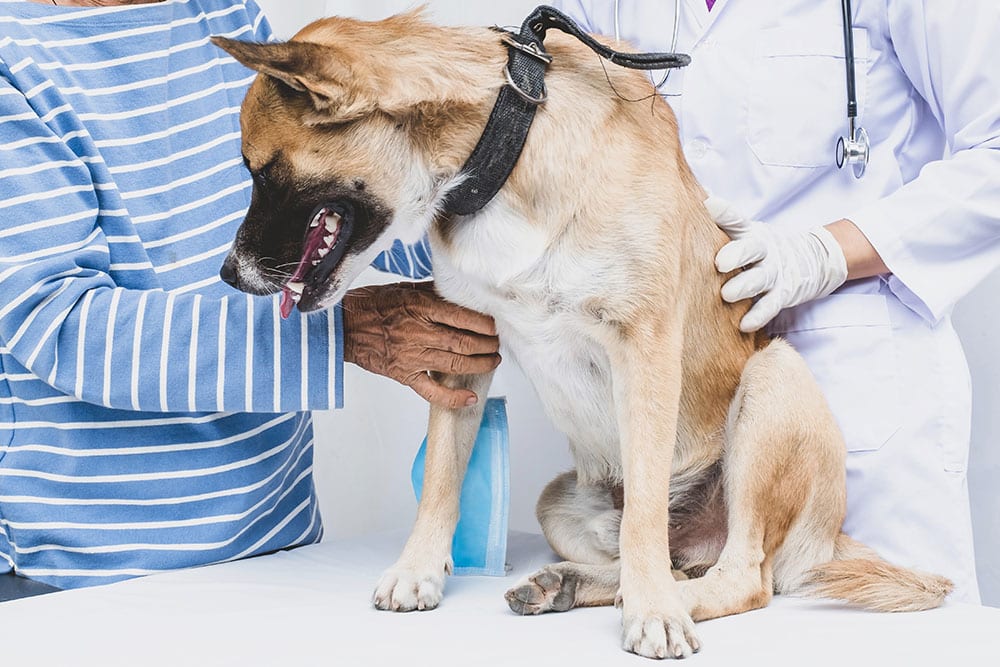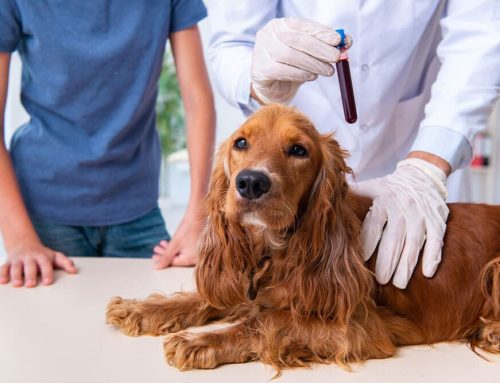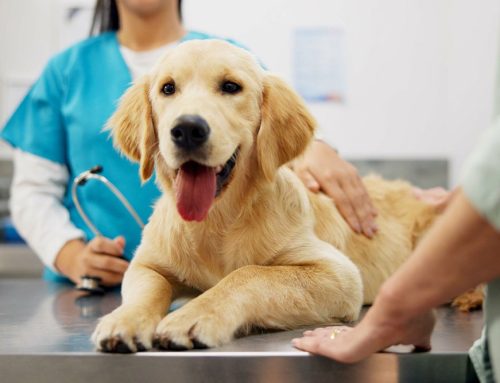Common Senior Dog Diseases and How to Manage Them
As our beloved dogs grow older, their needs begin to shift. They may sleep more, slow down on walks, or seem less interested in activities they once loved. While these changes are often a normal part of aging, they can also signal the onset of chronic health conditions. At Arlington Animal Hospital, we believe that senior dogs deserve the same joyful, active lives they’ve always enjoyed—and that starts with proactive care.
This guide outlines some of the most common health issues senior dogs face, along with practical advice for early recognition, treatment, and ongoing management. Whether your pup is just entering their golden years or already experiencing age-related conditions, we’re here to help every step of the way.
Schedule a check-up at Arlington Animal Hospital
Osteoarthritis and Joint Degeneration in Aging Dogs
Understanding Osteoarthritis
Osteoarthritis is a degenerative joint disease that becomes increasingly common with age. It causes pain, inflammation, and a gradual loss of mobility. If your dog is reluctant to get up, limping after rest, or struggling with stairs, osteoarthritis may be the culprit.
Symptoms of Osteoarthritis
- Stiffness or limping, especially in the morning
- Difficulty standing, climbing stairs, or jumping
- Decreased interest in play or exercise
- Noticeable discomfort or swelling in joints
Treatment and Management
- Weight management to reduce pressure on joints
- Low-impact exercise such as swimming or short walks
- Joint supplements like glucosamine and omega-3 fatty acids
- Pain relief options including NSAIDs, cold laser therapy, or acupuncture
Learn more: Best exercises for dogs with osteoarthritis
Cognitive Dysfunction Syndrome in Senior Dogs
What is Cognitive Dysfunction?
Cognitive Dysfunction Syndrome (CDS) is similar to dementia in humans. It can affect your dog’s memory, behavior, and ability to interact with their environment.
Recognizing the Signs
- Disorientation or confusion
- Wandering or getting stuck in corners
- Changes in sleep patterns
- House soiling or behavioral shifts
Management Tools
- Enrichment activities like toys and scent work to stimulate the mind
- Antioxidant-rich diets and omega-3 supplements
- Consistent routines to reduce anxiety
- Veterinary-prescribed medications such as selegiline
Learn more: More on cognitive decline in senior dogs
Signs of Cognitive Decline
Hypothyroidism in Older Dogs
What Is Hypothyroidism?
This hormonal disorder occurs when the thyroid gland doesn’t produce enough hormone, slowing the metabolism and affecting multiple body systems.
Symptoms
- Weight gain without increased appetite
- Lethargy or fatigue
- Dry skin, hair loss, or skin infections
- Cold intolerance
Treatment Plan
- Daily thyroid hormone medication (levothyroxine)
- Routine bloodwork to adjust dosage
- Healthy diet and exercise to maintain overall condition
More on hypothyroidism in dogs
Diabetes in Senior Dogs
Understanding Diabetes
Diabetes is a chronic condition where the body can’t properly regulate glucose levels. Early diagnosis is essential to prevent complications.
Symptoms
- Increased thirst and urination
- Sudden weight loss despite increased appetite
- Fatigue and frequent infections
- Cataracts or cloudy eyes
Managing Diabetes
- Daily insulin injections
- Balanced, high-fiber diet
- Regular glucose monitoring
- Consistent exercise and veterinary supervision
Learn more about: Managing diabetes in pets
Cancer in Senior Dogs
Common Cancers
- Lymphoma (affects lymph nodes)
- Mast cell tumors (skin cancer)
- Hemangiosarcoma (spleen/heart cancer)
- Osteosarcoma (bone cancer)
Warning Signs
- Unexplained lumps or swelling
- Persistent limping or lameness
- Weight loss, reduced appetite, or difficulty breathing
Treatment Options
- Surgery or biopsy for diagnosis and removal
- Chemotherapy or radiation for systemic treatment
- Palliative care and pain management
Learn: More about cancer in pets
Preventive Care Strategies for Senior Dogs
Regular Veterinary Visits
Early detection can greatly improve outcomes. Schedule biannual exams that include:
- Full physical exams
- Bloodwork and urinalysis
- Heart, lung, and joint assessments
- Learn more about your aging dog’s needs from the AVMA and AAHA:
Preventive testing for senior pets
Senior Pet Care – AVMA
Senior Status? Understanding Your Senior Pet’s Life Stage

Nutrition and Supplements
- Joint-supportive diets and omega-3 fatty acids
- Antioxidants for cognitive support
- Weight management for heart, liver, and joint health
- Learn more: Recommended supplements for aging dogs
Mobility Aids and Comfort at Home
- Provide orthopedic bedding or heated pads
- Use ramps or stairs for access to favorite spots
- Keep floors slip-resistant
- Learn more about making your home senior-friendly:
Assistive Devices for Arthritic Dogs
Arthritis-Friendly Home Modifications
Your dog may be growing older, but that doesn’t mean their best days are behind them. With thoughtful care and regular veterinary support, your senior dog can thrive. Our team at Arlington Animal Hospital is here to guide you every step of the way.
Book a senior pet wellness exam at Arlington Animal Hospital





Leave A Comment